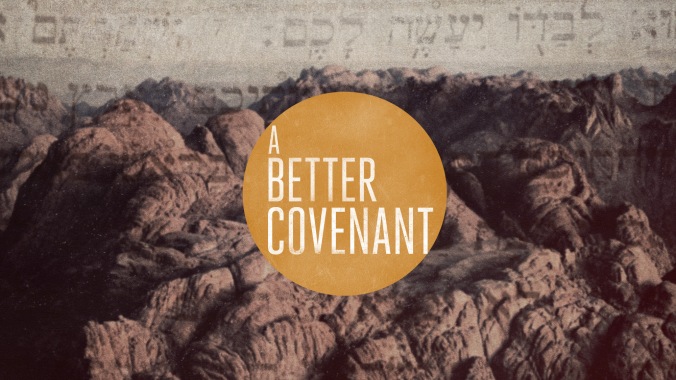Depending on our backgrounds, we might have varying ideas about the Old and the New Testament. Some of us don’t know the difference, others disregard the Old except to pull out some cool principles that correspond to the New, others try to balance the best of both worlds, upholding the rituals and celebrations of the Old while also following the instructions of the New. Maybe some of us do understand that the old law has been replaced, but the jury is still out on whether or not anything is fundamentally different, aside from sacrifices.
All of Hebrews reveals a very rich, sometimes meaty explanation of the work of Jesus and the difference between before and after the cross, but today we’re going to stick our noses just in chapter 8. Here are several lessons we can learn within this chapter about the old and new covenants:
1. Shadow
The old covenant is referred to as a copy or a shadow of heavenly things. So, think physical: tabernacle, sacrifices, circumcision, rituals, garbs, priesthood, rules of cleanliness, the commandments written on stone, the physical penalties for breaking those commandments, even the physical nation of Israel into which people were born. These were all ordained by God for a time, and for a purpose: they were temporary meant to teach us about God, about sin, about ourselves, and guide us to Christ, who would reveal the greater picture behind it all, which ties into the next point:
2. Promise
Israel’s promises and triumphs, which we read about throughout the OT, were physical redemption from physical slavery, and the promised land: a physical land of abundance and temporary rest on earth, though many never lived to see it. These too, were a shadow, pointing towards God’s ultimate promise which wouldn’t be revealed for many, many generations: spiritual redemption, a heavenly rest after death beyond our comprehension and lasting for all eternity. In the same way, Christians reap spiritual riches and rewards, heavenly gifts that can never decay or corrupt, rather than temporal material rewards in our lifetimes for our love and service to God and others.
3. Within
God promised to write his laws on the hearts and minds of his followers – his people would be transformed from within by his Spirit. We can sense from within whether something is pleasing to God, we can examine ourselves, our sin and our faith, we learn discernment, we see the underlying big spiritual picture underneath the day-to-day and we look past the letter of the law to understand the spirit of it. When our hearts are transformed by God under this new covenant, perhaps the greatest difference is delight: we delight in God, in glorifying him, we actually desire his laws and wish to be freed from sin. We truly love the Giver, not just his gifts.
4. Access
This one goes hand-in-hand with the last point: we have great examples of faith from the OT; these people demonstrated true love for God and their worship was not merely defined by externals – in fact they often personified the virtues taught in the NT. Sometimes the OT is caricatured as purely physical and devoid of faith and mercy and the NT as purely spiritual, yet the more we read, the less black-and-white it becomes. But here’s something worth noting: the new covenant is greater because what Israel had in a handful of people (think Abraham, Moses, David, etc), Christianity can have in all who put on Christ. God poured out his Spirit sparingly in the OT, yet today he promises his spirit to dwell within all who believe and are baptized. There is no longer only a priesthood who can only receive the Holy Spirit or teach others or have a relationship with God; we are all the priesthood now, and only Jesus Christ is our high priest. There is no longer a distinction between clergy/laity in the sense that all can attain an ever-deepening knowledge of God, all can go to the Father in prayer, all can be known by him, all are used as tools for God’s kingdom, all will be transformed and will glorify God in all that we do.
5. Forgiveness
Maybe forgiveness is a cliche topic these days, but it is another defining characteristic of the covenant Christians live under. Christ made the sacrifice to end all sacrifices, and through it, God can say “I will remember their sins no more.” We become new when we put on Christ, and we only need ask for forgiveness as we stumble along the way. Through our direct access to the Father, our advocate in Christ, we can all continually grow as men and women after God’s own heart. And because of what Christ did, the “shadows” are no longer necessary in that pursuit.
Christ came to fulfill the old law, not because it was defective; it was perfect in executing its purpose, yet it was never meant to last. It was meant to lead us to Christ, and once Christ was raised from the dead, the new and greater covenant came into effect. We are no longer bound by the law we read about in the OT but instead we come to God through Christ, we are forgiven through the blood of Christ, we set our mind upon the spiritual and heavenly, our hope is anchored in an eternal promise, we are renewed daily by the Spirit within us, we speak directly to the Father and can read and grow and learn his will no matter who we are. We are the new, spiritual, Israel.
